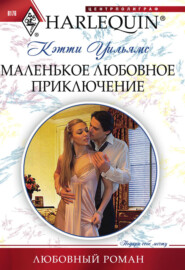По всем вопросам обращайтесь на: info@litportal.ru
(©) 2003-2025.
✖
Vengeful Seduction
Автор
Год написания книги
2018
Настройки чтения
Размер шрифта
Высота строк
Поля
‘When,’ she asked, ‘will you need my answer?’
‘The sooner the better.’
She nodded and stood up, and he followed suit, collecting his various files and stacking them into his briefcase. He had come well-prepared. Statistics had been shown her, profit and loss columns had been methodically pointed out, budgets analysed, and he had been right: she knew very little about finance. In time, she was sure, she could get to grips with it, but ‘in time’ might not be soon enough, and she knew that it would have broken her father’s heart to witness the dissolution of his beloved company. Better for it to carry on in a different form. Wasn’t it?
She showed Mr Clark out, looked in on her mother, who had fallen into a fitful sleep on the chair, and then retreated to the library to think.
It was so hard being strong, she thought wearily. Decisions had to be made and her mother, she knew, was in no fit state to make them.
Isobel sat back in the leather swivel chair and closed her eyes. Memories were the worst. Her father sitting her on his knee when she was a child, going for walks with her, patiently telling her about the various plants and trees in the garden.
She didn’t sob like her mother. The tears squeezed themselves out, but she didn’t brush them away. They fell on to her hands, on her lap, her dress.
That dreamlike feeling of unreality which had first dogged her had gone. Now she could think of the policeman at the door, breaking the news to them that there had been a car accident, that both occupants had been killed outright, without trying to convince herself that she would wake up at any moment and find that it had only been a terrible nightmare.
Jeremy had been at the wheel of the Jaguar. He had been overtaking another car and had been hit by an oncoming lorry. He had been over the limit.
She had tried very hard, but bitterness towards him had overlaid any pain she might have felt. He had ruined her life.
The following morning she telephoned Mr Clark and told him to go ahead with the sale of the company.
‘You have my trust in this matter, Mr Clark,’ she said down the line. ‘I will sign whatever needs signing, but I want no involvement beyond that.’
Her mother was out for the day, taken under wing by Jeremy’s mother, who had been distraught at the funeral but over the past weeks had been a source of strength to Mrs Chandler. They were going to have tea in one of the coffee-shops in the village.
That left Isobel on her own, and she made her way back to her own house. Ever since the accident she had been living with her mother, and it had been something of a relief.
The house she had shared with Jeremy, even after four years of marriage, had never felt like a home. She had looked after the gardens, arranged flowers in vases, hung paintings, but it had still remained a stiff, empty shell. A house could never become a home without love to fill it, and love was something that had been conspicuous by its absence.
She pushed open the front door, stooped down to collect the dribs and drabs of mail, and then, unemotionally, she resumed her sporadic job of packing Jeremy’s clothes into boxes which she had retrieved from the attic. She should have done it sooner, weeks ago, but time had flown past so quickly.
Suits, ties, trousers, jumpers, shirts. She would give them all to charity.
It had all been so pointless. She could remember being twenty, being in love, Lorenzo. Her throat constricted. Of course that had been another life, and she had got over him. Time healed everything; that much was true.
She hadn’t even had the reminder of his mother, because Mrs Cicolla had emigrated to America to be with her son three years previously.
She could still remember that dead, sickly feeling that had spread over her when he had announced at the wedding, not to her but to her parents, that he had decided to emigrate.
‘Within a fortnight,’ he had said casually, his hand in his pocket, his eyes not looking at her at all, eliminating her from his life in one fell swoop. Ex-lover with another man’s ring on her finger. No longer worth so much as token politeness.
That had been four years ago, but the memory was as clear as if it had been only yesterday, only a few hours ago.
She heard the buzz of the doorbell and ran down the stairs to answer it. Abigail. Isobel’s face broke into a smile of pure joy. She hadn’t seen Abigail, apart from briefly at the funeral three months ago.
‘I tried your mum’s house first,’ Abigail said, coming inside, ‘and when there was no reply, I thought that you might be here.’ She looked sympathetically at Isobel. ‘Do you need a hand with anything?’
They went upstairs and continued boxing the clothes, chatting. Abigail’s status, in the space of only a few years, had reached mammoth proportions. She was in the newspapers all the time, her movements shadowed and faithfully, or unfaithfully, reported back on.
‘How’s your mum coping?’ she asked casually, and Isobel paused to look at her.
‘Not very well,’ she answered truthfully. ‘She seems to have retreated into herself.’
‘It’s understandable.’
‘She doesn’t even venture out into the garden. She says every blade of grass reminds her of him.’
Abigail didn’t say anything for a while. ‘And you, Izzy?’ She looked away and busied herself with stuffing more clothes into boxes. Jeremy had had a lot of clothes. He had liked dressing the part of the wealthy landowner.
‘He’s in my mind,’ Isobel said in a low voice.
‘And Jeremy?’
Isobel stood up, dusted herself down and replied shortly, ‘You know that he caused the accident. The coroner told me that in privacy. I asked him if he could withhold the information from his parents, and from Mum.’
‘You always hated him, didn’t you?’
‘No.’ Isobel thought about it, for the first time putting into words what had never been said before. ‘He trapped me into marriage, and please don’t ask me how or why.’ Those papers. She frowned. Where were they? He must have hidden them somewhere. They could not have vanished into thin air. Oh, no. He would never have been so careless as to misplace them—after all, they were the stick to be waved over her if ever she thought of desertion. ‘Of course I hated him to start with, but you can’t hate forever. It’s too tiring. After a while, the instinct for self-preservation takes over or else you would just go mad.’ She shrugged and they went down to the kitchen to have some coffee.
It helped having someone to talk to. It made her co-ordinate her thoughts, and Isobel found herself telling Abigail about Mr Clark’s offer, what she intended to do with her house, her job.
‘I might even contemplate finding out whether I can’t complete some kind of medical course, take it up,’ she said, blushing. ‘Richard thinks it’s a good idea.’
‘Richard?’ Abigail’s eyebrows quirked. ‘Dr Adams, you mean?’
‘He’s very encouraging.’
‘And, so that’s how the land lies.’
‘Of course not!’ Isobel laughed. ‘You and that dramatic mind of yours! Richard and I are simply good friends. He’s been kind to me over the years.’
And they left it at that. Abigail departed late that evening and Isobel returned to find her mother in better spirits than she had been for weeks.
‘Emily is helping me to put everything in perspective, the dear woman,’ she said, sipping tea and picking bits of salad from her plate like a choosy bird deliberating over which morsels to consume. ‘David is gone, and hiding myself away isn’t going to change that. I’ve spent too long hiding. I want to start thinking about tomorrow. What did Mr Clark say?’
So Isobel told her, and the following morning, by some uncanny coincidence, he telephoned to inform her that the purchaser had arrived and would she come down to his offices on the High Street to sign some bits of paper.
Isobel dressed carefully for the occasion. A sober grey wool suit, because the chill of autumn was in the air, her pearls, cream-coloured shoes.
She looked in the mirror and saw the reflection of a twenty-four-year-old woman, nearly twenty-five, who, in the midst of loss, now found herself on the brink of freedom for the first time in four long years.
She smiled, and the image smiled back, showing her what she hadn’t seen for a very long time. The same stunning face, but with the black hair trimmed to a bob, a tall, lithe body, eyes that were a little sad, as though they had seen too much.
She swept out of the house, feeling better than she had done for a while, and arrived at Mr Clark’s offices well in time.
Mr Squires wasn’t there. Isobel drank coffee, made small talk to the accountant, and began to feel slightly annoyed that she was being kept waiting. Hadn’t this man heard of common politeness?
She glanced at her watch and caught Mr Clark’s eye. He was looking worriedly at his own watch. Presently he stood up, and said that he would go and have a look to see what had happened to the gentleman in question.

















